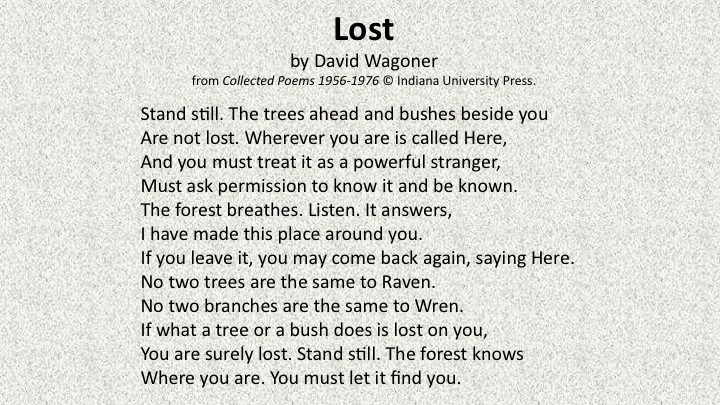Ralph T. died this week at 91 amazing years old. He was an Air Force pilot for 20 years, flying bombers during WW2 and retiring as a Major. He and Gerry would have been married 70 years this summer. Here's the funeral sermon for later today.
John 2. On the third day there was a wedding in Cana of Galilee, and the mother of Jesus was there. Jesus and his disciples had also been invited to the wedding. When the wine gave out, the mother of Jesus said to him, “They have no wine.” And Jesus said to her, “Woman, what concern is that to you and to me? My hour has not yet come.” His mother said to the servants, “Do whatever he tells you.” Now standing there were six stone water jars for the Jewish rites of purification, each holding twenty or thirty gallons. Jesus said to them, “Fill the jars with water.” And they filled them up to the brim. He said to them, “Now draw some out, and take it to the chief steward.” So they took it. When the steward tasted the water that had become wine, and did not know where it came from (though the servants who had drawn the water knew), the steward called the bridegroom and said to him, “Everyone serves the good wine first, and then the inferior wine after the guests have become drunk. But you have kept the good wine until now.” Jesus did this, the first of his signs, in Cana of Galilee, and revealed his glory; and his disciples believed in him.
This is one of the most ordinary stories I have ever heard about the most extraordinary person who ever lived.
That’s not exactly what John hoped we would get out of it, I understand. He reports that the wine steward, a kind of fancy butler who specializes in vintages and bouquets and pairings and other things I don’t understand about wine, marveled at the quality of the drink the groom had saved for the end of the wedding buffet. He reports that this sign, only the first of many that Jesus would perform over the course of the next several years, was revelatory of Jesus’ glory – that it demonstrated nothing less than the power of God come down to bless human beings with the tangible gifts of God’s kingdom. He reports that the disciples, who until now apparently followed Jesus on the strength of his personality alone, were jolted into something more like faith when they saw what he could do. In those ways, it is certainly an extraordinary event and one worthy of a slot among the collected gospel memories of our Lord and Savior.
But even so, the most interesting thing about this story is that it is so very ordinary, if not in its conclusion, then at least in its beginning. Jesus has been invited to a wedding, along with his mother, along with some friends, and he has chosen to attend. I suppose he has checked the little box on the RSVP card that says, “With pleasure,” and has written in his name so the bride’s family will know to save him a place. He has shopped for a gift in his price range from the registry at Target or Macy’s and has, like most of us do in the end, settled on a gift card so the couple can get what they really want. Perhaps the groom is a childhood friend from school; perhaps the bride is a cousin on his mother’s side; perhaps one or the other family are old friends of the Joseph-and-Mary clan and Jesus has been pressed into attending by his mother for the sake of appearances. There are many reasons one might choose to go to a wedding, but many more, it seems to me, that Jesus might have chosen not to go.
Namely, that he has just embarked on his mission to save the world. He has already been announced by his cousin John as The One We’ve All Been Waiting For; he has already begun to recruit disciples who will be with him almost until the end; he has already begun to draw the attention of the religious authorities; he has already begun to travel the Galileean countryside in search of souls who demonstrate the spiritual hunger he came to alleviate. This wedding is inconveniently timed, at best. It’s like asking Superman to pause midflight when he’s in hot pursuit of the bad guy so you can snap a selfie and send it to all your friends. Superman doesn’t have time for that. Jesus doesn’t have time for a wedding.
But there he is, all dressed up in his cleanest, finest tunic, freshly ironed, perhaps, by his mother who has strong opinions regarding her adult son's next steps. Speaking of which, the generational interaction between mother and son is another dollop of ordinary life that fascinates me more than the miraculous chemistry of water to wine. Here is Jesus, bickering with his mom in public over whether he should stick his nose into the groom’s business – whether the drained inventory of the fruit of the vine is his problem to solve. She thinks yes; he thinks no. And so they spar a bit, loudly enough for someone to hear and pass the story down through the generations. And his mother, as mothers usually do, wins. How ordinary can you get?
Even when we consider the miraculous act itself, the transformation of water from an ordinary well into a lip-smacking vintage of the most expensive and perfectly aged Bordeaux, we might be underwhelmed. This is not like other miracles Jesus does, where somebody’s life is on the line, or somebody’s livelihood has been compromised, or somebody’s heart is destined to be broken. No one is bleeding or suffering a debilitating fever; no one is having seizures or begging on the side of the road; no one has lost the love of their life to the power of death. All that has happened here is that a party is about to be cut short before the guests are ready to go home. Turning water to wine saves face for the groom and saves a Saturday night from premature boredom, but it doesn’t save anyone’s life. Compared to what Jesus is able to do, this, the first of his signs in Cana of Galilee, doesn’t quite measure up.
But this is what I have come to love about the story of the wedding at Cana: that it is so perfectly ordinary. There are so many stories about Jesus that seem far removed from my own life as his follower. Leprosy and paralysis and even hunger are not high on my personal list of problems needing solutions. And even if they were, even when they or conditions like them will someday be pressing concerns for which I will seek relief from the Lord, I will not likely assume that a touch of his hand or a word from his mouth will spare me from the normal suffering that accompanies every human life to its earthly end. I don’t fail to thank God when my loved ones experience inexplicable turns toward good health or good fortune. But I also don’t demand that God must reverse the conditions of human suffering here and now to be worthy of my allegiance.
The wedding at Cana, though – that feels close. That feels like a scenario that is recreated countless times in the lives of people around the world. People fall in love, or their families arrange relationships in which love can flourish. People get married. Friends gather to celebrate. I’ve presided at lots of weddings; I’ve been a guest at a few more; I’ve been the bride for just one; and I love imagining that Jesus himself made time to come to every single one of them, joining his friends and family for a celebration of human life, the joining of hearts and fortunes in a commitment to ride out the future together, come what may.
More to the point for today, I love imagining that Jesus himself made time for Ralph and Gerry’s wedding, almost 70 years ago. It might have seemed, back in 1944, that there were more pressing concerns for the savior of the world. There were pilots offering minute-by-minute prayers for the safety and success of their missions. There were prisoners offering minute-by-minute prayers for liberation from the hell of their internment. There were government leaders praying minute by minute for the wisdom to somehow make global peace out of global chaos. The whole world was on fire in 1944; the whole universe clamoring, groaning, for redemption from the wreckage. I imagine Jesus was pretty busy, fielding those prayers, guiding those hearts and hands, suffering alongside the miserable and lending strength to the liberators.
But in the middle of it all, in nineteen-forty-freaking-four, two people found themselves in the most ordinary of circumstances, imagining the future they could build together out of little more than the love they felt in their hearts. Ralph and Gerry couldn’t ask the World War to pause for their nuptials, but they could send an invitation to the savior of the world with a high degree of confidence that he would take the time to attend. And so he did.
And when our Lord is invited to a wedding, he stays. He stays for the reception afterward, John says, to make sure the celebration is thorough and well stocked. And more importantly, he stays for the marriage, and for the family that grows out of that marriage, for all the generations that are born in love and raised in love and tended to and nourished and cared for in love. Having been invited to Ralph and Gerry’s wedding, he surely stayed to see the generations of kids and grandkids and great-grandkids who counted on them to open their home and their hearts time and again for almost 70 years. When the Trostels invited the Lord of Love into their life together, it is the testimony of scripture that he came, and stayed, and remains with them even today.
Because, of course, weddings are not the only events Jesus attends with his friends and his family. Jesus goes to funerals, too. He went to several during his time walking and talking with us as the Son of Man. And he never misses one now; living, breathing Spirit that he is. And it is the testimony of our ancestors in faith, it is the continued testimony of all those who believe, that when Jesus attends a funeral, the dead are raised to new life. Remember the son of the widow at Nain; the daughter of Jairus the synagogue leader; Lazarus, the brother of Martha and Mary of Bethany. Consider the countless spouses and sons and daughters and fathers and mothers who are grieved on earth even as they are received in heaven. And, yes, consider Ralph T – the one whose wedding Jesus was happy to attend all those years ago, the one whose funeral Jesus is present for today, the one whose life Jesus is even now working to put back together after the chaos and confusion of dying and death.
In the most ordinary of circumstances of our numbered days, in the familiar forms of our celebrations and our sorrows, Jesus is here. And John tells us that wherever Jesus is, the ordinary becomes extraordinary. The water turns to wine. Disappointment turns to serendipity. Death turns to life. Sorrow turns to joy. So it has been, and so it will always be, wherever Jesus is invited to stay, world without end, amen.









